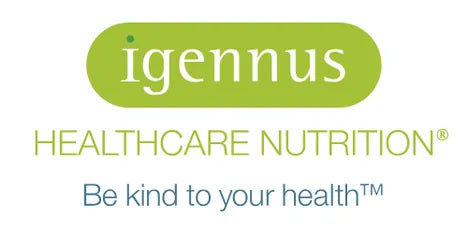We tend to take fertility for granted until some of us encounter problems when trying to conceive, with statistics suggesting that around 3.5 million people in the UK do. While nutrition is often not considered until after conception, research clearly indicates its importance for ensuring the health of sperm cells and egg cells. This two-part fertility series aims to support both men and women in their quest to nurture fertility naturally. Part 1 focuses on nutrition and individual nutrients, while part 2 will discuss lifestyle considerations in more detail.
1. Support fertility with folate
Folate, also better known as folic acid (the synthetic form often found in supplements), is recommended during pregnancy for preventing birth defects such as spina bifida. However, folate is also important in men and women before conception.
For women, optimising folate status pre-conception reduces problems with ovulation, improves chances for pregnancy and supports embryo quality. (1) In men, folate encourages spermatogenesis (the production of sperm cells). (2)
Among its many roles, folate is a key component of an important detoxification pathway called methylation. However, mutations (or polymorphisms) can occur in the genes that code for enzymes involved in metabolising folate from its dietary form to its usable form required for methylation. An impairment in methylation, for example due to missing micronutrients in their correct forms, can lead to increased production of homocysteine, which is best known for its association with heart health. Additionally, increased levels have been linked to poor health outcomes in general, including male infertility. (2)
Good dietary sources of folate include legumes and cruciferous vegetables. When considering a folate supplement, opt for a methylated form to better support methylation. Also consider testing homocysteine levels if you experience unexplained infertility. A qualified healthcare practitioner will be able to arrange this for you and provide further assistance.
2. Selenium to protect sperm cells and egg cells
Selenium is a mineral with antioxidant activity, providing protection to cells from reactive oxidative species (ROS). It is also found in follicular fluid in women and the testes of men, where it provides protection to developing sperm cells. (3)
A high rate of ROS is associated with the development of pregnancy-related complications, and reduced levels of selenium have been observed in the follicular fluid of women with unexplained infertility. (4) However, excess selenium intake can be just as detrimental in men, decreasing sperm quality and motility. (3)
While dietary selenium comes from both animal and plant sources, the amount of selenium contained within plant sources varies depending on the soil they’re grown in. Brazil nuts are considered to be a rich source of selenium but the actual levels depend on where they have been grown. Excess selenium intake is rare but may occur in industrial accidents or from supplementing excessive amounts.
3. The importance of zinc for supporting sperm count
In both men and women, zinc has many functions, including supporting production of sex hormones. Seminal fluid contains the highest concentration of zinc in comparison to other bodily fluids, and concentrations are positively correlated with sperm count, likely due to its role in testosterone production. (5)
Oysters, considered an aphrodisiac, are an especially rich source of zinc. Other sources include shellfish, grass-fed beef and lamb, seeds, lentils and chickpeas.
4. Omega-3 to support sperm cells and egg cells
Fats are important for the whole body but, especially when considering fertility, distinguishing between healthy and unhealthy fats is particularly important. Trans-fats, derived from partially hydrogenated fats and found in many fried and baked processed foods, are associated with poor fertility. In contrast, omega-3 intake from sources such as oily fish, nuts and seeds, and oils derived from flaxseed, is linked to better fertility outcomes, leading to improved semen quality in men and improved egg cell quality and embryo implantation for women. (6)
Sperm cells also contain a high concentration of the long-chain omega-3 fatty acid DHA, which supports their formation. (7)
Eating a portion of oily fish each week in addition to taking a daily omega-3 supplement from a pure and concentrated fish or algae oil is the most effective way to safely optimise your omega-3 status without concern for toxic metals.
You can reduce your intake of trans-fats by replacing oils with coconut and olive oil, and considering healthier alternatives to cakes and biscuits, such as a portion of fruit, a handful of nuts, or homemade chocolate chip oat biscuits.
5. Antioxidants - eat brightly coloured fruit and vegetables
Antioxidants protect cells from ROS, which can originate from many sources, including the simple act of breathing. While the production of ROS is a normal process that’s managed by the body to a certain extent, excess ROS production is associated with impairment in sperm protein, sperm cell dysfunction and DNA damage. (8) In women, egg cell quality gradually decreases over time in response to increased ROS production. (9)
Avoiding excess ROS production in the diet is discussed in section 7 of this article, whereas lifestyle sources will be explored in greater detail in part 2 of the fertility series.
Vitamin C, in the form of ascorbic acid, can be found within the testes where it provides antioxidant support and encourages spermatogenesis. (8) In women, supplementation is linked to higher vitamin C concentrations in follicular fluid and increased progesterone concentrations in blood, important for preparing the uterus for pregnancy. (10) Good sources of vitamin C include citrus fruits and other brightly coloured fruits and vegetables.
N-Acetyl cysteine (NAC) is the supplement form of the amino acid cysteine, a precursor to the endogenously produced antioxidant glutathione. Supplementation with NAC has been shown to improve sperm motility. (8) Dietary sources of cysteine include beef, chicken, lentils, oatmeal and eggs.
6. CoQ10 - supplement with Ubiquinol
Coenzyme Q10 (CoQ10) is a vitamin-like substance produced by the body to support energy production in cells, more precisely in the mitochondria. However, concentrations decrease with age in both men and women. With its role both in energy production and as an antioxidant, animal studies suggest promise for supplementation with CoQ10 in the context of fertility.
For women, CoQ10 supplementation may delay depletion of ovarian reserves, as well as improve egg cell mitochondrial function, i.e. its energy metabolism. (11) CoQ10 supplementation has been shown to improve IVF success rates by improving ovarian response. (12)
For men, there is a strong correlation between ubiquinol (the reduced form of CoQ10) availability in seminal fluid and sperm count and motility, with reduced levels found in infertile men. (13)
Organ meats provide the best dietary source of CoQ10, followed by meat, fish, nuts and, to a lesser extent, vegetable oils. A study researching the benefits of dietary intake of CoQ10 found no measurable improvement in the health of sperm cells in sub-fertile men when relying on dietary sources alone. (14) One explanation for this could be the significantly greater intake of CoQ10 from a supplement, which may offer a superior option.
For those over the age of 30, consider supplementing with ubiquinol, the body-ready form of CoQ10, to replenish the body’s naturally declining levels of the coenzyme.
7. Tweaking your diet - a Mediterranean type shows the most promise
Time and time again we hear about the health benefits of the Mediterranean diet. Traditionally, a Mediterranean-style diet consists of higher intakes of fruit and vegetables, legumes and fish in comparison to a Western diet and greater use of olive, rather than other, oil. The increased consumption of these foods is associated with improved antioxidant status and polyunsaturated fat intake. Coupled with a reduction in processed red meat and dairy products, sources of saturated fats, a Mediterranean-type diet appears to better support health. Research suggests that the Mediterranean diet improves sperm quality, increasing sperm count and motility. (8, 15) In women, fewer problems in conceiving and improved IVF success rates from the first round of IVF are observed with adherence to the Mediterranean diet. (16, 17)
To transition to a Mediterranean-type diet, increase your daily intake of fruit and vegetables, switch to whole grains and incorporate more herbs and spices into your dishes. Cook with and dress your salads with olive oil. When it comes to animal products, a Mediterranean-type diet features fish often, poultry, dairy and eggs in moderation, and red meat is eaten less frequently. Plant proteins are more dominant in a Mediterranean-type diet, with beans, legumes, nuts and seeds eaten regularly. Studies suggest that consuming more plant protein in comparison to animal protein may better support ovulation. (18) Read this article about protein requirements to ensure you are obtaining enough protein daily.
Additional health considerations to rebalance nutrient status
8. Vitamin D - supplement vitamin D3 in the winter months
Is it a coincidence that Italians witness a peak in pregnancy rates during the summer and autumn months when vitamin D levels are at their peak? (19)
Vitamin D deficiency is common in the UK, especially during the winter months when the sun’s UV rays are not strong enough to enable vitamin D production in the skin. While often taken for granted, vitamin D levels are an important factor when trying to conceive as low levels are considered a risk marker for reduced fertility. (19) Important for cell division, women with optimal vitamin D levels have more live births than those with deficient or sub-optimal levels. (19) In men, vitamin D levels are positively correlated with semen quality. (8)
Speak to your GP or healthcare practitioner to obtain a vitamin D test. While taking a daily vitamin D supplement will support vitamin D levels, deficiency status may require intensive treatment to obtain optimal levels more quickly.
9. Are you digesting your nutrients?
Since key nutrients are essential for fertility, the body’s ability to absorb and utilise consumed nutrients must be considered. Conditions affecting digestion include coeliac disease, Crohn’s, ulcerative colitis, and non-coeliac gluten sensitivity, to name but a few.
Such digestive conditions may negatively affect your ability to absorb some important nutrients, including vitamin D, iron and folate. (20) If you have a diagnosed condition that affects your digestive health or you experience bloating, diarrhoea, wind and/or fatty stools on a regular basis, it may be advisable to seek the support of a qualified healthcare practitioner to help improve your ability to digest the food you eat. If you’re looking for a place to start, this article about gut problems contains nutrition tips to soothe unexplained symptoms.
Having discussed important nutrients to consider when addressing fertility, in part 2 we will take a deep dive into lifestyle considerations, including sources of ROS and understanding the role of key hormones.
ReferenceS
- Silvestris, E., Lovero, D., & Palmirotta, R. (2019). ‘Nutrition and Female Fertility: An Interdependent Correlation’, Frontiers in endocrinology, 10, 346. doi:10.3389/fendo.2019.00346
- Aarabi, M., San Gabriel, M. C., Chan, D., Behan, N. A., Caron, M., Pastinen, T., Trasler, J. (2015). ‘High-dose folic acid supplementation alters the human sperm methylome and is influenced by the MTHFR C677T polymorphism’, Human molecular genetics, 24 (22), pp. 6301–6313. doi:10.1093/hmg/ddv338
- Ahsan, U., Kamran, Z., Raza, I., et al. (2014). ‘Role of selenium in male reproduction - a review’, Animal reproduction science, 46, (1-2), pp. 55-62. doi: 10.1016/j.anireprosci.2014.01.009. Epub 2014 Jan 31
- Qazi, I. H., Angel, C., Yang, H., Pan, B., Zoidis, E., Zeng, C. J., Zhou, G. B. (2018). ‘Selenium, Selenoproteins, and Female Reproduction: A Review’, Molecules (Basel, Switzerland), 23 (12), 3053. doi:10.3390/molecules23123053
- Kerns, K., Zigo, M., & Sutovsky, P. (2018). ‘Zinc: A Necessary Ion for Mammalian Sperm Fertilization Competency’, International journal of molecular sciences, 19, (12), 4097. doi:10.3390/ijms19124097
- Gaskins, A. J., & Chavarro, J. E. (2018). ‘Diet and fertility: a review’, American journal of obstetrics and gynecology, 218, (4), pp. 379–389. doi:10.1016/j.ajog.2017.08.010
- Esmaeili, V., Shahverdi, A. H., Moghadasian, M. H., Alizadeh, A. R. (2015). 'Dietary fatty acids affect semen quality: a review.', Andrology, 3 (3), pp. 450-61. doi: 10.1111/andr.12024. Epub 2015 May 7.
- Ilacqua, A., Izzo, G., Emerenziani, G. P., Baldari, C., & Aversa, A. (2018). ‘Lifestyle and fertility: the influence of stress and quality of life on male fertility,’ Reproductive biology and endocrinology: RB&E, 16, (1), 115. doi:10.1186/s12958-018-0436-9
- Agarwal, A., Aponte-Mellado, A., Premkumar, B. J., Shaman, A., & Gupta, S. (2012). ‘The effects of oxidative stress on female reproduction: a review’, Reproductive biology and endocrinology: RB&E, 10, 49. doi:10.1186/1477-7827-10-49
- Agarwal A1, Gupta S, Sharma R. (2005). 'Oxidative stress and its implications in female infertility - a clinician's perspective', Reproductive biomedicine online, 11, (5), pp 641-50.
- Ben-Meir, A., Burstein, E., Borrego-Alvarez, A., Chong, J., Wong, E., Yavorska, T., Jurisicova, A. (2015). ‘Coenzyme Q10 restores oocyte mitochondrial function and fertility during reproductive aging,’ Aging cell, 14(5), 887–895. doi:10.1111/acel.12368
- Xu, Y., Nisenblat, V., Lu, C., Li, R., Qiao, J., Zhen, X., & Wang, S. (2018). ‘Pretreatment with coenzyme Q10 improves ovarian response and embryo quality in low-prognosis young women with decreased ovarian reserve: a randomized controlled trial’, Reproductive biology and endocrinology : RB&E, 16(1), 29. doi:10.1186/s12958-018-0343-0
- Collins, G.G., Rossi, B.V. (2015) ‘The impact of lifestyle modifications, diet, and vitamin supplementation on natural fertility,’ Fertil Res and Pract 1, 11 doi:10.1186/s40738-015-0003-4
- Tiseo, B. C., Gaskins, A. J., Hauser, R., Chavarro, J. E., Tanrikut, C., & EARTH Study Team (2017). ‘Coenzyme Q10 Intake From Food and Semen Parameters in a Subfertile Population,’ Urology, 102, 100–105. doi:10.1016/j.urology.2016.11.022
- Karayiannis, D., Kontogianni, M. D., Mendorou, C. (2017) 'Association between adherence to the Mediterranean diet and semen quality parameters in male partners of couples attempting fertility.' Human Reproduction, 32 (1), pp. 215-222. Epub 2016 Nov 14.
- Toledo, E., Lopez-del Burgo, C., Ruiz-Zambrana, A., et al. (2011) 'Dietary patterns and difficulty conceiving: a nested case-control study', Fertility and sterility, 96 (5), pp. 1149-53. doi: 10.1016/j.fertnstert.2011.08.034. Epub 2011 Sep 22
- Karayiannis, D., Kontogianni, M.D., Mendorou, C. et al. (2018) 'Adherence to the Mediterranean diet and IVF success rate among non-obese women attempting fertility.', Human Reproduction, 33, (3) pp. 494-502. doi: 10.1093/humrep/dey003.
- Chavarro JE, Rich-Edwards JW, Rosner BA, et al. (2008). ‘Protein intake and ovulatory infertility,’ Am J Obstet Gynecol;198:210.e1-210.e7.
- Pilz, S., Zittermann, A., Obeid, R., Hahn, A., Pludowski, P., Trummer, C., März, W. (2018). ‘The Role of Vitamin D in Fertility and during Pregnancy and Lactation: A Review of Clinical Data’, International Journal of environmental research and public health, 15 (10), 2241. doi:10.3390/ijerph15102241
- Pieczyńska, J. (2018) 'Do celiac disease and non-celiac gluten sensitivity have the same effects on reproductive disorders?', Nutrition, 48, pp 18-23. doi: 10.1016/j.nut.2017.11.022. Epub 2017 Dec 8








